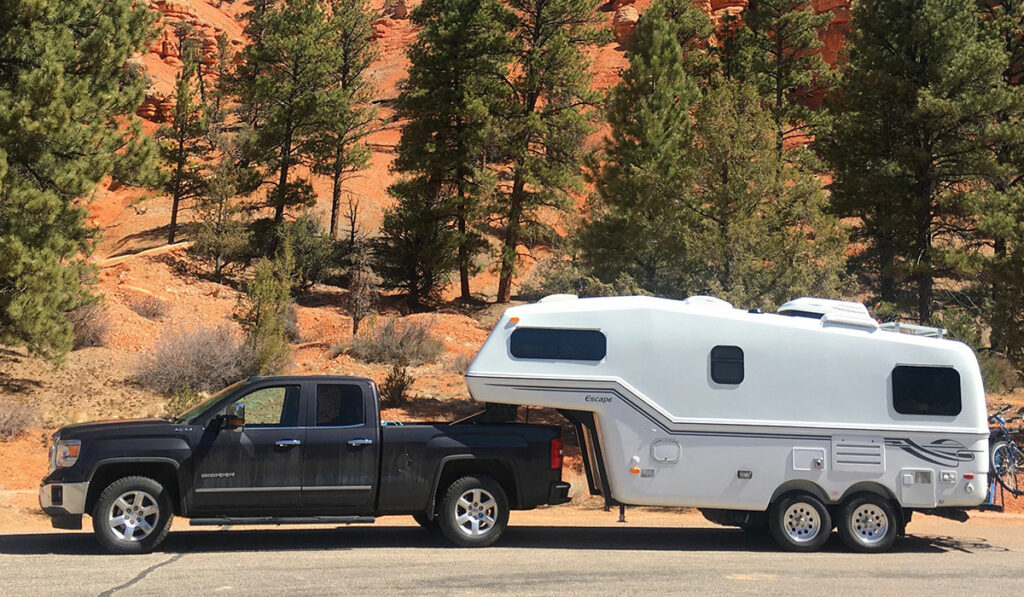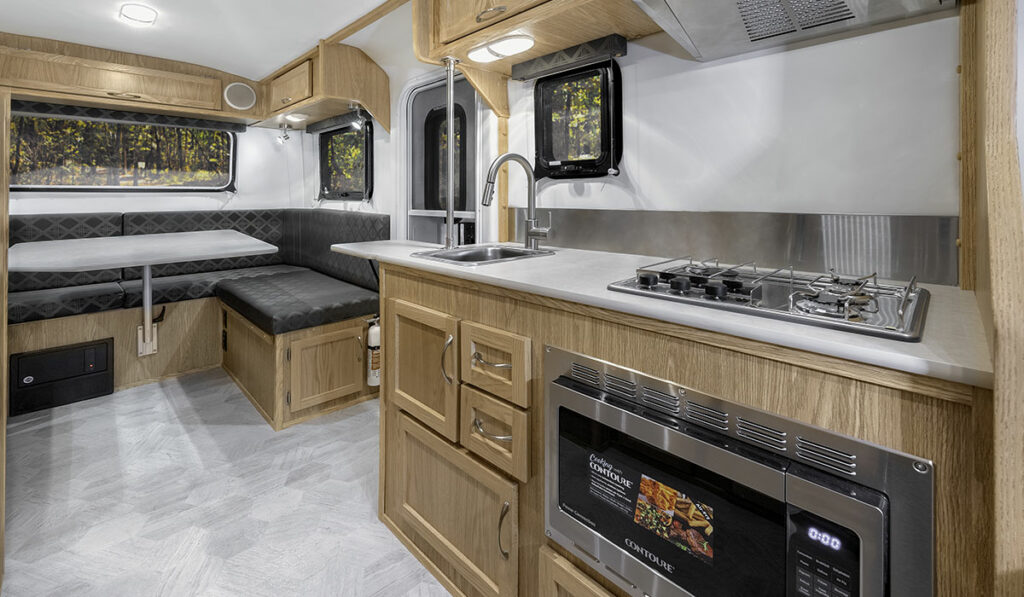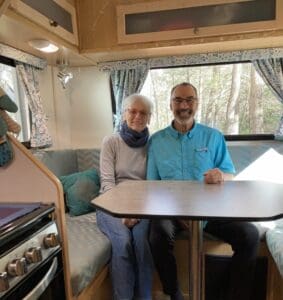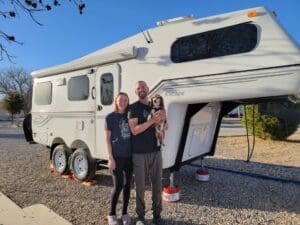12 Biggest Regrets Many RV Owners Have about Their Purchases
Every year many people join the RV lifestyle and thoroughly enjoy the decision, but sometimes people have regrets.
Are you considering how to start your RV lifestyle? If so, sit down with a pad of paper and start thinking about the coming adventures that your new life will bring, as well as the work and money involved and the changes to your lifestyle. With a little foresight and self-reflection, many of these problems can be avoided and you will soon be enjoying a brand new part of your life.

RV purchase regrets & thinking through your needs
No matter how you look at it, buying an RV is an investment. An investment that requires you to expect the unexpected. Ultimately, you want your investment to last. By avoiding some of these common RV regrets, you can more carefully plan for your future needs and choose an RV that gives you the biggest bang for your buck.
1. An RV that’s too big
While buying bigger might sound nice, bigger also applies to your bills and potential problems. Bigger RVs cost more to start with, and maintenance will also be more expensive and time-consuming. A bigger trailer means a bigger tow vehicle. Bigger and more slide-outs mean more things that can go wrong.
So make sure that you are getting the right size RV for you and your budget. Learn why a small RV is often a better choice.
2. Getting a motorhome instead of a travel trailer
While it might sound nice initially, having a self-propelled RV might not be as nice in the end. It can cost more to maintain. And if you have a breakdown, you will have fewer choices for repairs than a tow vehicle. Where will you stay and how will you get around while it is being repaired?
With a trailer, you might be able to pull it with a vehicle that you already own, and that will save you a lot of money in the long run.
3. Not thoroughly researching a tow vehicle
Before you buy, look into a tow vehicle. If you already have one, make sure that it is rated to pull the trailer that you are planning to buy. If you have to purchase one, look into its tow rating. It will also need a hitch rated for the weight of your trailer along with the proper connection for your trailer lights (and brakes if your trailer comes with them).
Don’t forget the cost of insurance and maintenance for your vehicle as well. Both can get rather pricey and need to be included in your budget.
And some tow vehicles can guzzle gas, so consider the mileage that you will be getting, too.

4. Not opting for personalization
Few people are satisfied with an “off-the-shelf” RV, so expect to spend money on making it your home away from home. While adding a couple of pictures and a few plants isn’t too expensive, replacing the table or changing storage space can be costly. This can sometimes be more expensive than replacing or remodeling things in your home! So it is very important to be happy with the RV when you first purchase it.
Look for a trailer that you can have built to your personal specifications, so that it reflects your personality and meets your specific needs from day one.
5. No accounting for storage between RV trips
Many communities won’t allow you to store your RV in your yard or driveway, and this may apply to your tow vehicle as well. Check with your municipality and your homeowners’ association. You don’t want to bring your new RV home, then receive a citation for having it in your drive, and then have to pay an additional monthly fee to store it somewhere.
Storage can also complicate renovations, maintenance, and repairs to your RV as well. It won’t be nearly as easy to make repairs at a storage facility.
6. Not accounting for propane for cooking & your refrigerator
While not a huge expense, constantly replacing the propane can add up. Keep it in mind and add it to the expected expenses as you plan your trip.
7. Overstocking your kitchen
You can bet that your kitchen will be a fraction of the size you are used to. You won’t have the space for all the appliances, prep surfaces, cookware, and utensils you have at home. But that is one of the joys of RVing–keeping life simple. Bring only appliances that you know you will be using every day, like a coffee maker. Leave the air fryer and bread maker at home. And limit the plates and utensils you bring. If you need more, you can fall back on paper and plastic.
8. Not optimizing for food
Your storage space will be smaller, so plan on slimming your food selection a bit. You might have to make some choices about what canned fruit and veggies you bring, along with condiments and spices. If possible, get square storage containers because they will take up less space on your selves. If you keep to the basics, you should have plenty of space.
9. Packing your whole wardrobe
This can be difficult but stick to a limited number of basic items. Limit yourself on items like pairs of shoes and bulky coats. The same goes for the rest of your wardrobe–pack items that can be worn in more than one setting, and you should do fine.
10. Not paring back on accessories for hobbies
A digital camera won’t take up much space, even if you have a selection of lenses for it, but you need to leave your darkroom at home. This applies to other hobbies or games that you might enjoy. You will only have room for a limited amount of items, so bring the minimum.
There are many games available on your phone or tablet that will not take up any space. And when possible, opt for digital books, too. You can bring an extensive library with you on your tablet without taking up any extra space or adding any weight.
11. Too much depreciation
Like everything, the value drops the moment you leave the store. This is true of RVs as well, but not all RVs depreciate equally – take a look at Escape’s stats. Even if you are planning to buy new, explore the used RV market and see which brands and sizes seem to be holding their value. That way if you decide to upsize, downsize, or replace your RV, you will have a better chance of applying some of your initial cost toward the new one.
12. Following campground & RV site rules and etiquette
Escaping the rules of life at home doesn’t mean that you are free to do whatever you want. You will still be affected by laws and rules.
Most campgrounds have rules about:
- Pets
- Quiet hours
- Fires
- Alcohol and drugs
- Fireworks and guns
- Trash and cleanliness
- Parking
There are also some common courtesies that you need to observe, like:
- Always park where you are supposed to on your campsite
- Always monitor your children, especially when they are young
- Make sure that your water and especially your sewer lines aren’t leaking
- Make sure that your pets are confined safely
- Be respectful of other campers
- Never put your things in the way of your neighbors
- Never leave trash on the ground and always store it in covered containers
Planning ahead to minimize RV regrets
Adopting an RV lifestyle will bring you and your family endless joy, especially if you take a proactive approach to your RV purchase and maintenance.
With some thoughtful planning before you start, you will have the right RV and know what to expect on the road–at least as far as lifestyle and challenges. Good things that you can expect to encounter are beautiful vistas, new experiences, and forming some wonderful friendships with those that you meet on your way.
To receive our newsletter by e-mail, please click the “Subscribe” button in the footer below.












